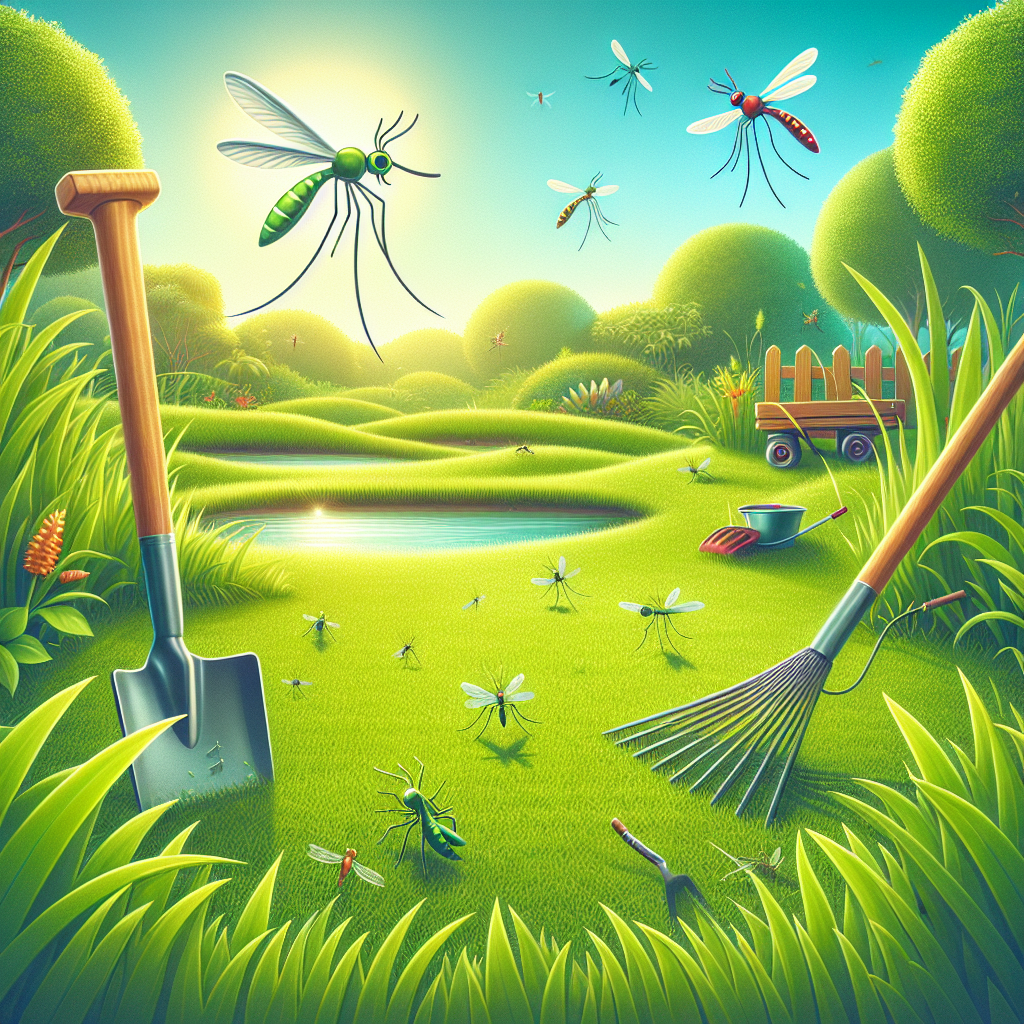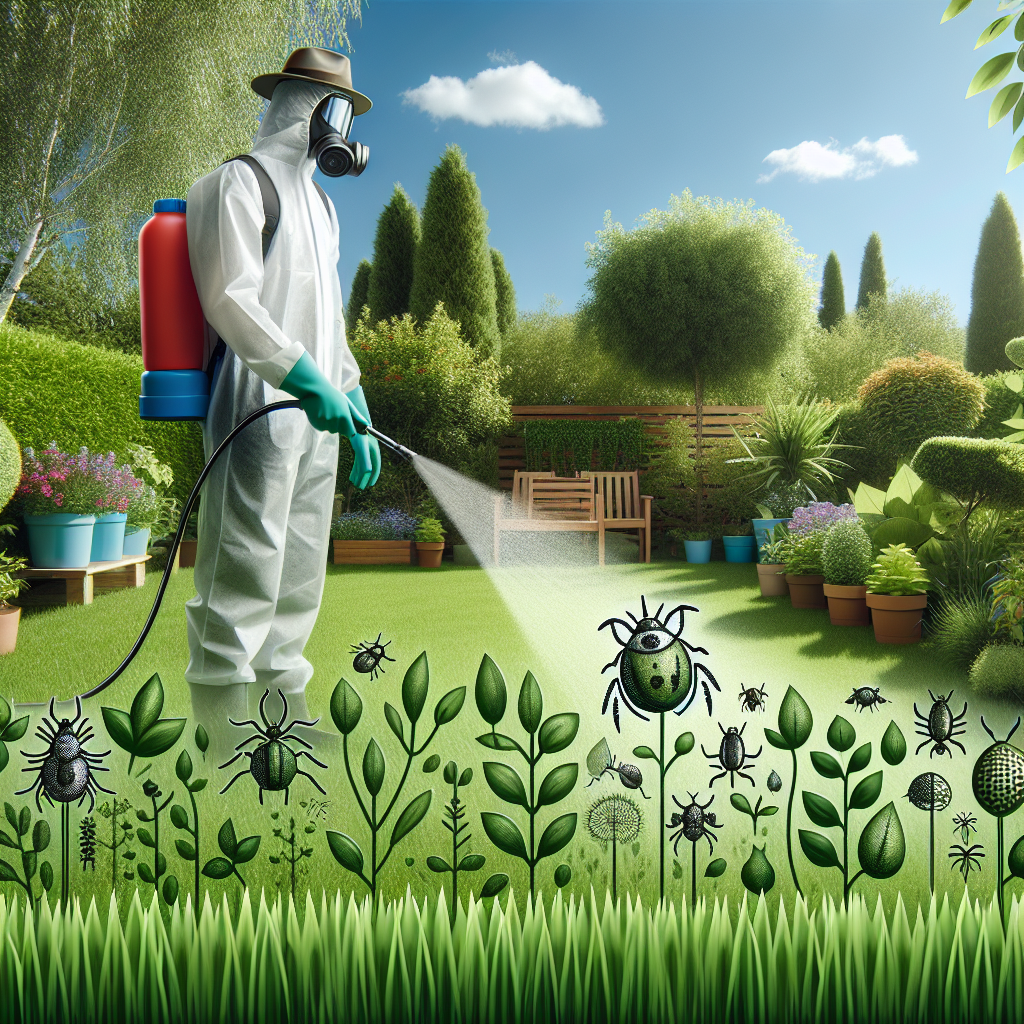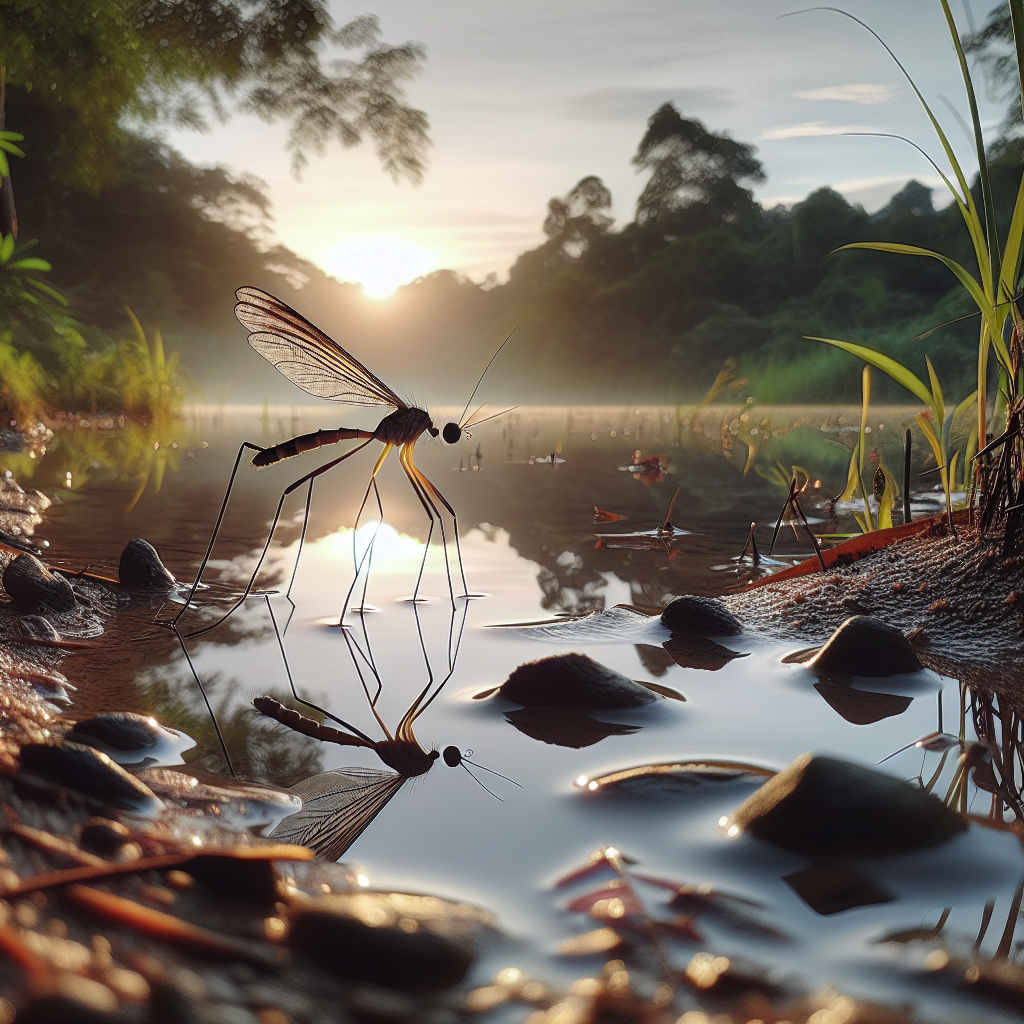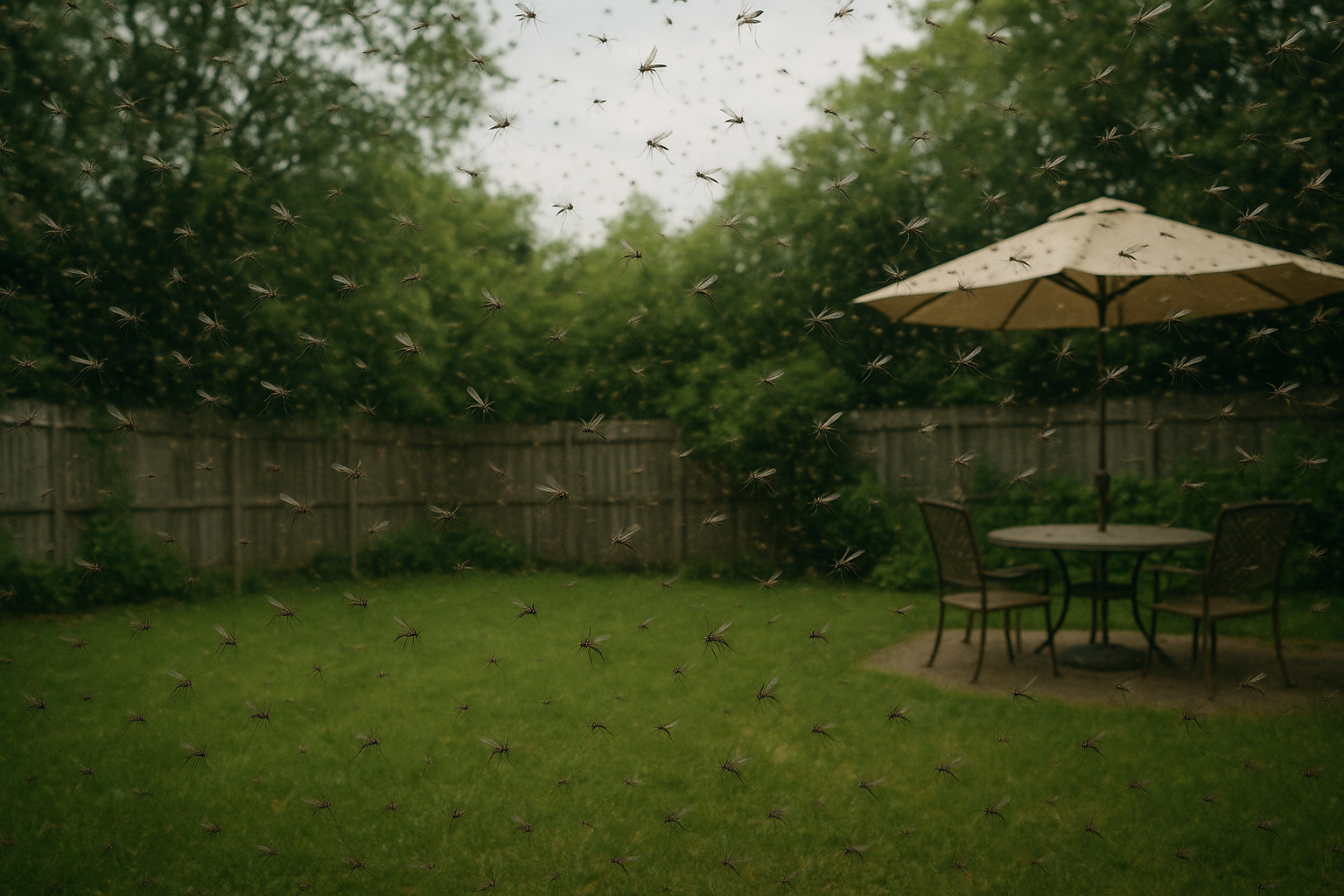The Best Way to Get Rid of Mosquitoes in Your Yard
Understanding Mosquito Behavior and Habitats
Mosquitoes are more than just a nuisance; they can pose serious health risks by transmitting diseases like West Nile virus, Zika virus, and malaria. To effectively control mosquitoes in your yard, it’s essential to understand their behavior and habitats. Mosquitoes thrive in warm, humid environments and are most active during dawn and dusk. They are attracted to carbon dioxide, body heat, and even certain scents, which is why they seem to target some people more than others.
Mosquitoes breed in standing water, making your yard a potential hotspot if you have birdbaths, clogged gutters, or even small puddles. Female mosquitoes lay their eggs in stagnant water, and within 7-10 days, those eggs can develop into adult mosquitoes. Their life cycle consists of four stages: egg, larva, pupa, and adult. By disrupting this cycle, you can significantly reduce their population. Understanding why your yard might be attracting mosquitoes—such as overgrown vegetation or poor drainage—can help you take targeted action to eliminate them.
Natural Methods to Eliminate Mosquitoes
If you’re looking for eco-friendly ways to keep mosquitoes at bay, natural methods can be highly effective. These solutions not only reduce mosquito populations but also minimize harm to beneficial insects and the environment.
Mosquito-Repelling Plants to Consider
Certain plants naturally repel mosquitoes due to their strong scents. Incorporating these into your landscaping can create a natural barrier against these pests. Here are some top choices:
- Citronella Grass : Known for its lemony scent, citronella is a common ingredient in mosquito repellents.
- Lavender : Its calming aroma is pleasant to humans but deters mosquitoes.
- Marigolds : These vibrant flowers contain pyrethrum, a compound used in many insecticides.
- Basil : Not only a culinary herb, but basil also repels mosquitoes and flies.
- Lemongrass : Similar to citronella, lemongrass emits a citrusy scent that mosquitoes dislike.
Plant these around patios, decks, and other outdoor spaces to create a mosquito-repelling perimeter.
DIY Natural Mosquito Repellents
Homemade mosquito repellents are another effective way to protect your yard. Here are two simple recipes:
- Lemon Eucalyptus Spray : Combine 10 drops of lemon eucalyptus oil with 2 tablespoons of witch hazel and 2 tablespoons of water in a spray bottle. Shake well and apply to exposed skin.
- Garlic Water Spray : Crush a few garlic cloves and steep them in water overnight. Strain the mixture and spray it around your yard. The smell fades quickly for humans but remains unpleasant to mosquitoes.
These natural solutions are safe, affordable, and easy to make, offering a chemical-free way to keep mosquitoes at bay.
Yard Maintenance Tips to Prevent Mosquito Infestations
A well-maintained yard is your first line of defense against mosquitoes. By eliminating their breeding grounds and hiding spots, you can significantly reduce their presence.
The Importance of Removing Standing Water
Standing water is a mosquito’s breeding paradise. Even small amounts—like water collected in a flowerpot saucer—can support mosquito larvae. Here’s how to tackle standing water:
- Empty and clean birdbaths, pet bowls, and kiddie pools regularly.
- Check for clogged gutters and ensure proper drainage.
- Fill in low-lying areas in your yard where water tends to pool.
- Store unused items like buckets and wheelbarrows upside down to prevent water collection.
By removing stagnant water, you disrupt the mosquito life cycle and prevent new generations from emerging.
Proper Lawn and Garden Care
Mosquitoes love to hide in tall grass, overgrown bushes, and dense vegetation. Regular yard maintenance can make your outdoor space less inviting to them:
- Mow your lawn frequently to keep grass short.
- Trim bushes and hedges to reduce shaded areas where mosquitoes rest.
- Remove leaf litter and other debris that can trap moisture.
- Clean out gutters to prevent water buildup.
A tidy yard not only looks great but also helps keep mosquitoes at bay.
Using Mosquito Traps and Barriers
For added protection, mosquito traps and barriers can be highly effective tools in your mosquito control arsenal.
Types of Mosquito Traps
Mosquito traps work by attracting and capturing mosquitoes, reducing their population over time. Here are some popular options:
- CO2 Traps : These traps mimic human breath by releasing carbon dioxide, luring mosquitoes into a capture chamber.
- UV Light Traps : These use ultraviolet light to attract mosquitoes, which are then zapped or trapped.
- Sticky Traps : These traps use adhesive surfaces to catch mosquitoes that come into contact with them.
Place traps in shaded areas where mosquitoes are most active for optimal results.
Installing Mosquito Netting and Screens
Physical barriers like mosquito netting and screens can create mosquito-free zones in your yard. Use these to cover outdoor seating areas, patios, or even your porch. For added protection, consider installing fine mesh screens on windows and doors to keep mosquitoes from entering your home.
Chemical Solutions for Mosquito Control
When natural methods aren’t enough, chemical solutions can provide effective mosquito control. However, it’s important to use these products responsibly to minimize environmental impact.
Choosing the Right Insecticide
Not all insecticides are created equal. Look for products specifically designed to target mosquitoes, such as those containing pyrethroids or larvicides. Larvicides, in particular, are effective for treating standing water, as they kill mosquito larvae before they can mature.
Safety Tips for Using Chemicals
When using chemical solutions, follow these safety guidelines:
- Wear protective gear, such as gloves and masks, during application.
- Avoid spraying on windy days to prevent drift.
- Keep children and pets away from treated areas until the product has dried.
- Follow the manufacturer’s instructions carefully to avoid overuse.
For a safer alternative, consider hiring professionals who are trained in the proper application of insecticides. Call 919-726-3785 today for a free quote or to schedule a service.
Leveraging Technology for Mosquito Control
Modern technology offers innovative solutions for mosquito control, making it easier than ever to enjoy your yard without the buzz.
Smart Mosquito Repellent Devices
Smart mosquito repellents, such as app-controlled devices, use heat or ultrasonic waves to repel mosquitoes. These devices can be programmed to activate during peak mosquito activity, providing targeted protection.
Automated Misting Systems
For larger yards, automated misting systems can deliver consistent mosquito control. These systems release a fine mist of insecticide at scheduled intervals, covering your yard evenly. While effective, they require professional installation and maintenance.
When to Call a Professional
Sometimes, DIY methods aren’t enough to tackle a severe mosquito infestation. Knowing when to call in the experts can save you time and frustration.
Signs of Severe Mosquito Infestations
If you notice the following signs, it may be time to seek professional help:
- Large swarms of mosquitoes in your yard.
- Persistent bites despite using repellents and traps.
- Mosquito larvae in standing water that you can’t eliminate.
What to Expect from Professional Services
Professional pest control companies offer comprehensive mosquito management services, including yard inspections, targeted treatments, and ongoing maintenance plans. They use advanced tools and techniques to eliminate mosquitoes effectively and safely. Call 919-726-3785 today for a free quote or to schedule a service.
Mosquito Authority of Durham NC delivers expert mosquito control services, mosquito and tick control, and pest control services. No contracts. Guaranteed results. Call 919-726-3785 today or visit our website.










